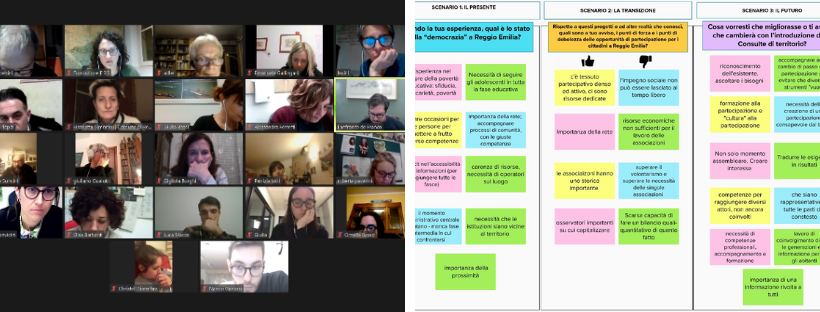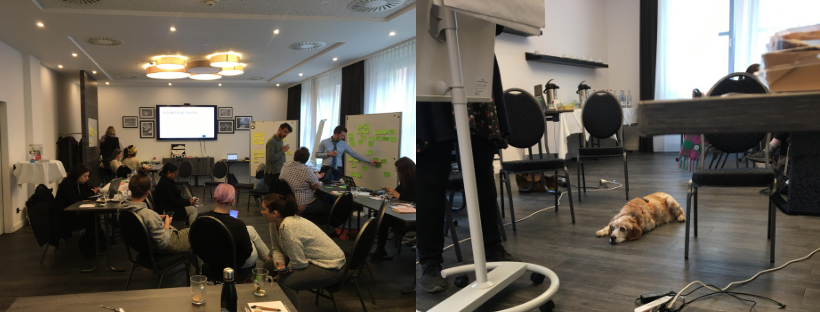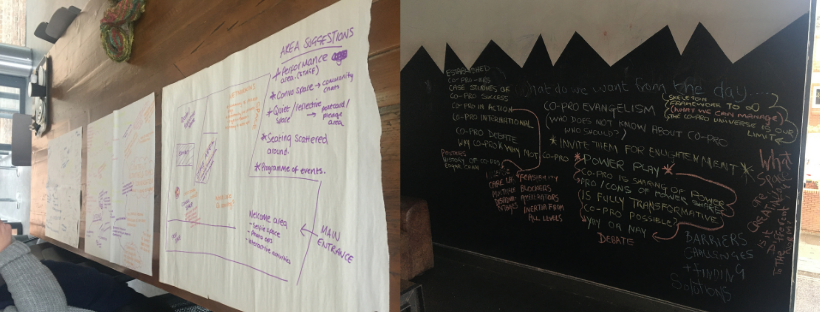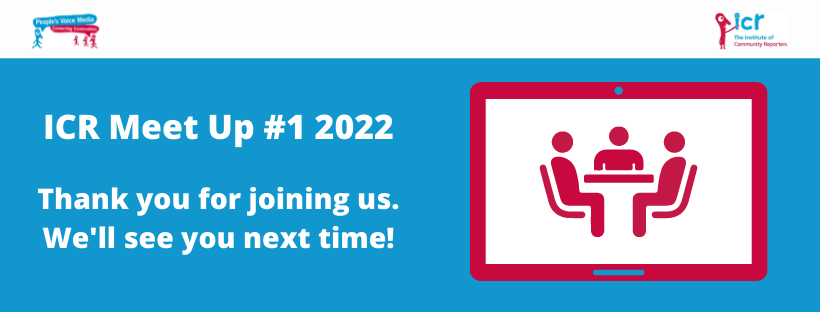STORYTELLING AND FUTURE-THINKING WITH EUARENAS

For many years, storytelling has been applied as a tool for learning and change-making. In recent years, lived experience storytelling in particular, has thrived as a tool for social justice, via the creation of spaces for discussion and exchange. Over the last 6 months, we have been experimenting with combining our own lived experience storytelling method – Community Reporting – with future-thinking activities as part of EUARENAS.
Foresight – or future thinking – provides scope for people to think about the future and use this to model and respond to potential prospective circumstances. In an ever-changing world, it asks us to think about our future, what challenges are on the horizon and how we can address them to achieve shared outcomes. To explore the future of democracy in Europe, partners in Italy, Estonia and Poland have worked with citizens to share experience of democracy in the present day and use them to discuss what the future may hold. In these workshops, citizens used the three horizon framework to map various pathways for the future of democracy in their context.
In the Municipality of Reggio Emilia, they worked with 13 people who were active in their communities and involved in civil society activities. One of the ‘preferred’ visions for the future that this group stated, was that they wanted to increase the diversity of voices involved in democracy: “I only hope that these councils will not always be attended by the same people”. In Voru, Estonia they worked with young people to explore their ideas about democracy and hopes for the future. Similar to the citizens in Reggio Emilia, they wanted to enhance diversity as they felt that currently “the voice of a minority is often not heard”. Finally, in Gdansk, Poland they worked with a heterogeneous group of citizens. Reflecting on the workshop, the Polish team felt that the workshop’s methods supported citizens to speak up – “It is important to sincerely listen to people’s stories, and even sometimes when we lose the topic of discussion, let them talk – because for some people it is the first time that they have a voice.”
In July we will be launching a ‘Lived Experience Storytelling and Future-Thinking’ toolkit and later in the year, we will be sharing with you the learning from these activities as part of an Insight Briefing.



